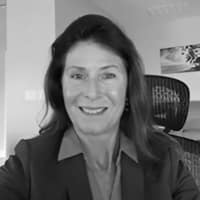

The Power of Internships: A Graduate’s Journey to Becoming an Engineer

When Manuel Miranda Zapata (’24) first told his high school counselor in Orlando, Florida, that he wanted a career in aviation, she pointed him toward Embry-Riddle Aeronautical University.
Originally considering the Aeronautical Science program, he discovered a deeper calling during his junior year of high school, a fascination with how aircraft are designed and built. That curiosity led him to pursue the Bachelor of Science in Aerospace Engineering with a minor in Applied Mathematics at Embry-Riddle’s Daytona Beach Campus.
“I wanted to take on something challenging and respected,” he said. “Aerospace Engineering gave me the chance to learn how aircraft are designed and why they work the way they do.”
Learning Through Challenges
Like many engineering students, he admits the transition wasn’t easy.
“When I started, I thought I knew what engineers did. I had no idea what I was getting into,” he said with a laugh.
Through rigorous coursework and demanding projects, he learned the value of persistence, curiosity and learning from failure.
“There were semesters where I had to retake classes,” he said. “But those experiences forced me to change my approach and to slow down, ask more questions and really understand the ‘why’ behind the design. It made me a better engineer.”
Building Real-World Skills Through Internships
Breaking into the aerospace industry often begins with one of the toughest challenges: securing that first internship.
Zapata credits much of his professional readiness to hands-on internships that connected classroom theory with real-world problem solving. Once he secured his first opportunity, doors began to open. His first opportunity came with Modularity Space, a startup based at the MicaPlex, part of Embry-Riddle’s Research Park where startups, industry leaders and university researchers turn ideas into real-world innovations. There, he gained valuable experience in systems engineering and spacecraft communication networks.
“The internship taught me how startups operate and gave me the foundation I needed to move forward,” he said.
That experience opened the door to a co-op with Delta Air Lines in Atlanta, where he worked on Airbus Fleet Engineering projects focused on aircraft safety, reliability and maintenance.
“Working for one of the largest maintenance, repair and overhaul (MRO) organizations in North America was my first big break,” he said. “It gave me hands-on experience with Airbus aircraft and ultimately, that experience helped me land my current role.”
The Classroom Meets Industry
One of the most influential courses he took was Aircraft Preliminary Design with Kimberly Heinzer, associate professor of Aerospace Engineering.
“That class had a lasting impact on my career progression,” he said. “Our team collaborated with The Boeing Company and the College of Business to establish design goals for next-generation aircraft.”
The project integrated business students into the design team to analyze market needs, product support and financial viability, creating a holistic approach that balanced engineering excellence with real-world requirements.
“I was able to talk about this project when I was interviewing with companies in my senior year,” he added. “It ultimately helped me land a role with Airbus.”
As a structure repair engineer at Airbus, Zapata analyzes aircraft damage, coordinates with design engineers and manages repair solutions to ensure aircraft safety and airworthiness.
“What excites me most is seeing the direct impact of my work,” he said. “When a repair I helped develop gets approved and an aircraft safely returns to service, it reminds me why I chose this field.”
Leadership and Community Through SHPE
Outside the classroom, Zapata built leadership and community through involvement in the Society of Hispanic Professional Engineers (SHPE).
As SHPE’s social chair during the pandemic, he helped maintain engagement through virtual events, later joining the corporate relations committee to strengthen connections with industry partners such as NASA and The Boeing Company.
“SHPE gave me a sense of belonging,” he said. “It showed me that no one succeeds in engineering alone. You learn to lean on your peers and help others succeed, too.”
“With events either remote or under strict restrictions, I had to completely rethink how we built community,” he said. “It was a challenge to maintain turnout and enthusiasm, but it pushed me to become more adaptive, intentional and creative in building connections. I focused on fostering that ‘familia’ aspect within our chapter, despite the physical barriers.”
These experiences taught him how to build relationships, navigate professional environments and give back. He now continues that spirit of connection through employee resource groups (ERGs) at Airbus, supporting early-career professionals and Hispanic employees.
Advice for Future Eagles
For current and future students, he encourages persistence, curiosity and early involvement.
“Figure out what specific discipline within aerospace engineering interests you — whether that’s structures, systems or flight testing,” he advised. “Join professional organizations like SHPE or American Institute of Aeronautics and Astronautics (AIAA) early. Those connections and experiences will help you grow academically and professionally.”
He also stresses the importance of internships and teamwork.
“Get as much hands-on experience as you can. Internships teach you what you like — and what you don’t, so you can tailor your career path. And don’t underestimate the value of study groups, office hours and peer support.”

A Proud Moment
After years of long nights, setbacks and hard-earned victories, walking across the stage at graduation was a defining moment.
“Graduation wasn’t just about earning a degree,” he said. “It was a symbol of every obstacle I overcame: the sleepless nights, the doubts, the perseverance. Finally hearing my name called, I could proudly say: I am an aerospace engineer.”

